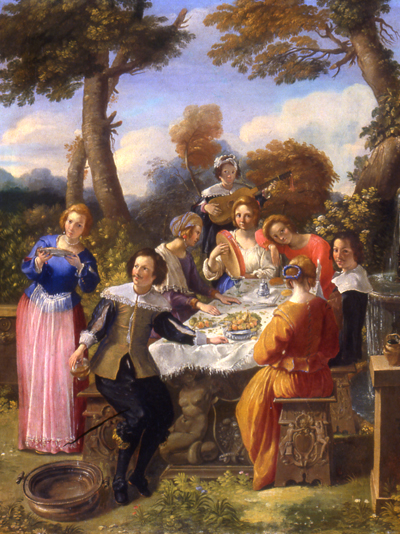 Passeri’s A Party Feasting in a Garden seems like a happy end to an alfresco luncheon. Young couples are deep in conversation, flirting, and courting, which suggests this is a garden of love. It is casual and innocent, though Passari is a moralist. Close examination...
Passeri’s A Party Feasting in a Garden seems like a happy end to an alfresco luncheon. Young couples are deep in conversation, flirting, and courting, which suggests this is a garden of love. It is casual and innocent, though Passari is a moralist. Close examination...
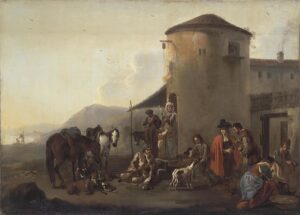 Miel’s halt on the hunt and repas de chasse depicts hunters stopped by a rustic inn. In the Prado’s La Merienda, hunters have spread a cloth beside their horses and are settling in to relax. This is a perfunctory meal of sliced ham, cheese, bread, and wine. Unlike...
Miel’s halt on the hunt and repas de chasse depicts hunters stopped by a rustic inn. In the Prado’s La Merienda, hunters have spread a cloth beside their horses and are settling in to relax. This is a perfunctory meal of sliced ham, cheese, bread, and wine. Unlike...
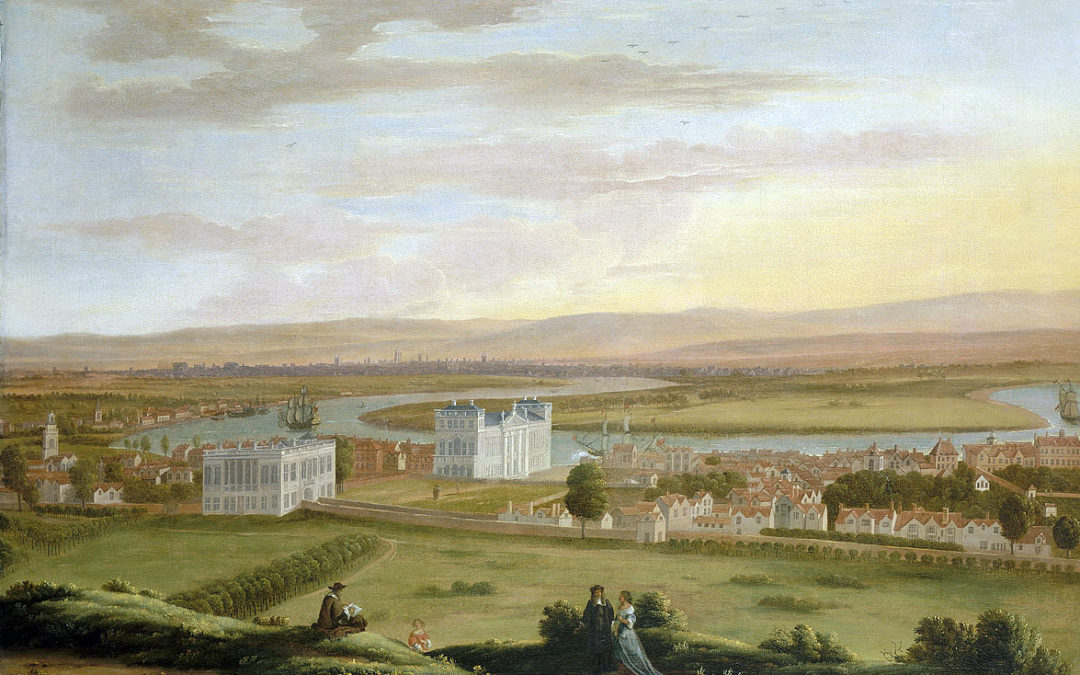 Pepys’s “frolique” is a euphemism for a picnic, which did not exist as a word in English. It was among his favorite ways to spend an afternoon with friends idling. It was a favorite way for him to spend an afternoon with friends idling. We know this...
Pepys’s “frolique” is a euphemism for a picnic, which did not exist as a word in English. It was among his favorite ways to spend an afternoon with friends idling. It was a favorite way for him to spend an afternoon with friends idling. We know this...
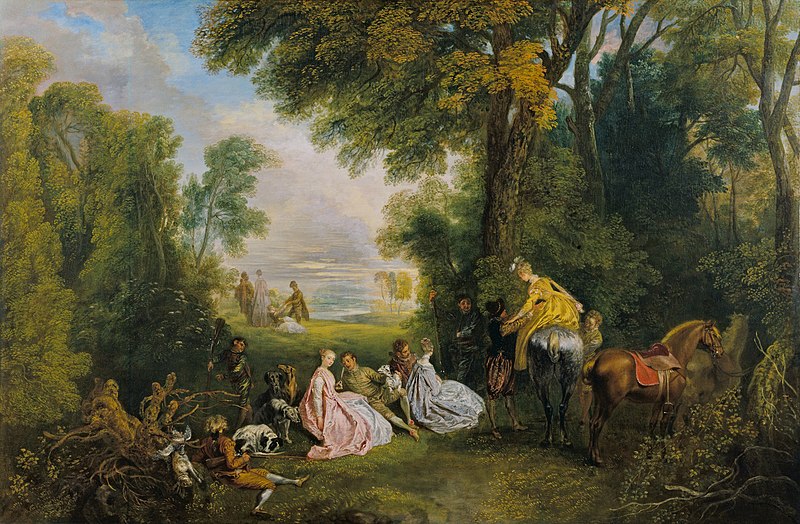 Watteau’s Rendez-vous de chasse illustrates a common activity among hunters, especially aristocrats who stopped about midday for a luncheon. The pause was called a tryst (a meeting at predetermined location), where their wives or mistresses met the hunters....
Watteau’s Rendez-vous de chasse illustrates a common activity among hunters, especially aristocrats who stopped about midday for a luncheon. The pause was called a tryst (a meeting at predetermined location), where their wives or mistresses met the hunters....
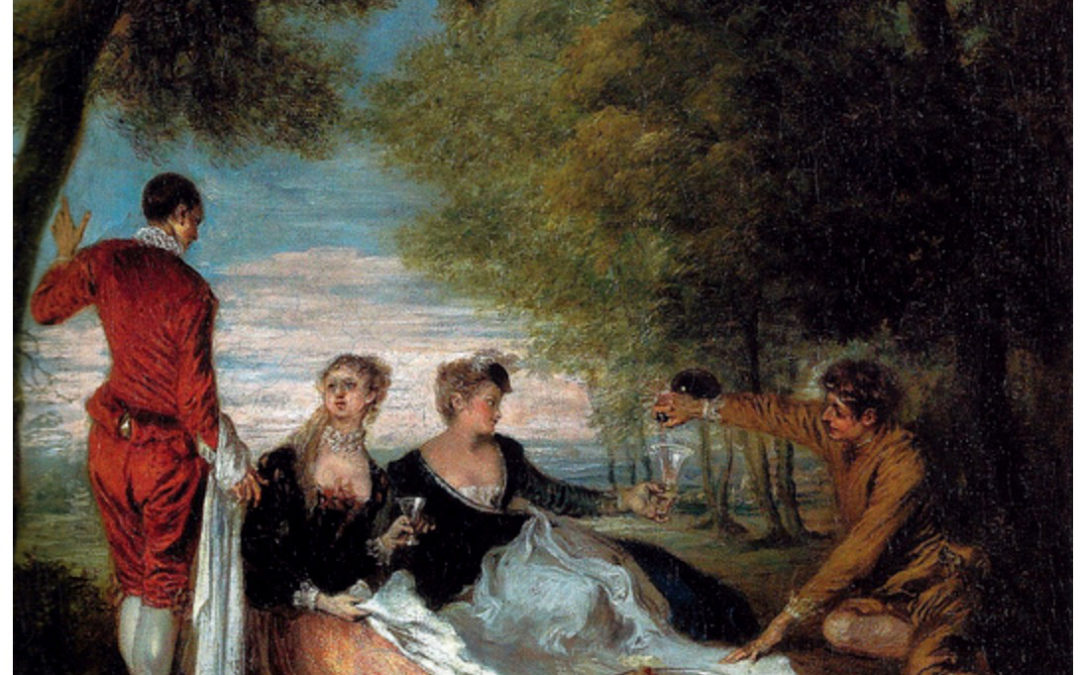 Watteau’s The Collation or Lunch in the Open (1710-1720s c.) is intimate and picnicky. Among his works, it is the most like a déjeuner sur l’herbe, except for his hunt luncheon subjects. As usual, for the French, the subject is not referred to as un...
Watteau’s The Collation or Lunch in the Open (1710-1720s c.) is intimate and picnicky. Among his works, it is the most like a déjeuner sur l’herbe, except for his hunt luncheon subjects. As usual, for the French, the subject is not referred to as un...
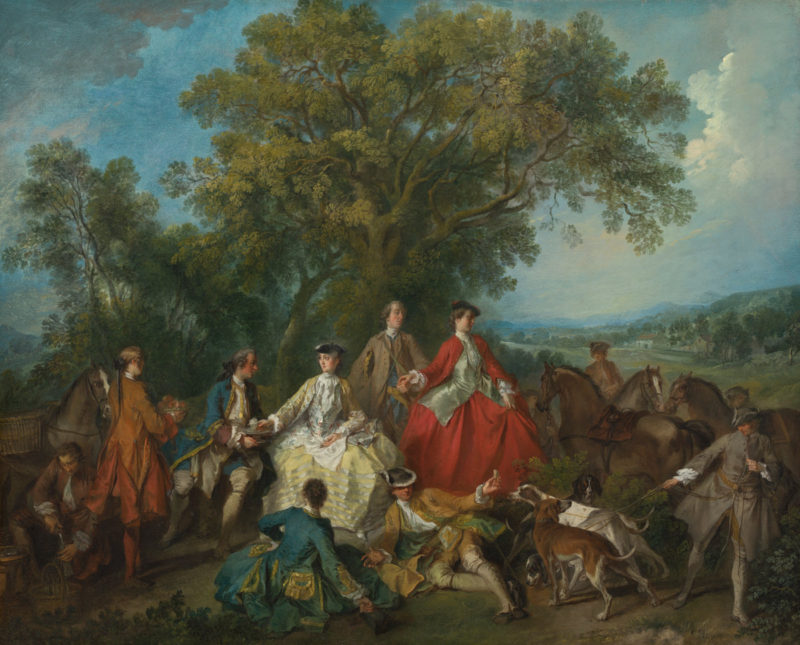 Because the scene is obviously a picnic, the National Gallery of Art’s title, The Picnic after the Hunt, is apt. But Lancret, whose language was French, would not have used pique-nique because it refers to an indoor dinner. More likely, he would have titled un repas...
Because the scene is obviously a picnic, the National Gallery of Art’s title, The Picnic after the Hunt, is apt. But Lancret, whose language was French, would not have used pique-nique because it refers to an indoor dinner. More likely, he would have titled un repas...
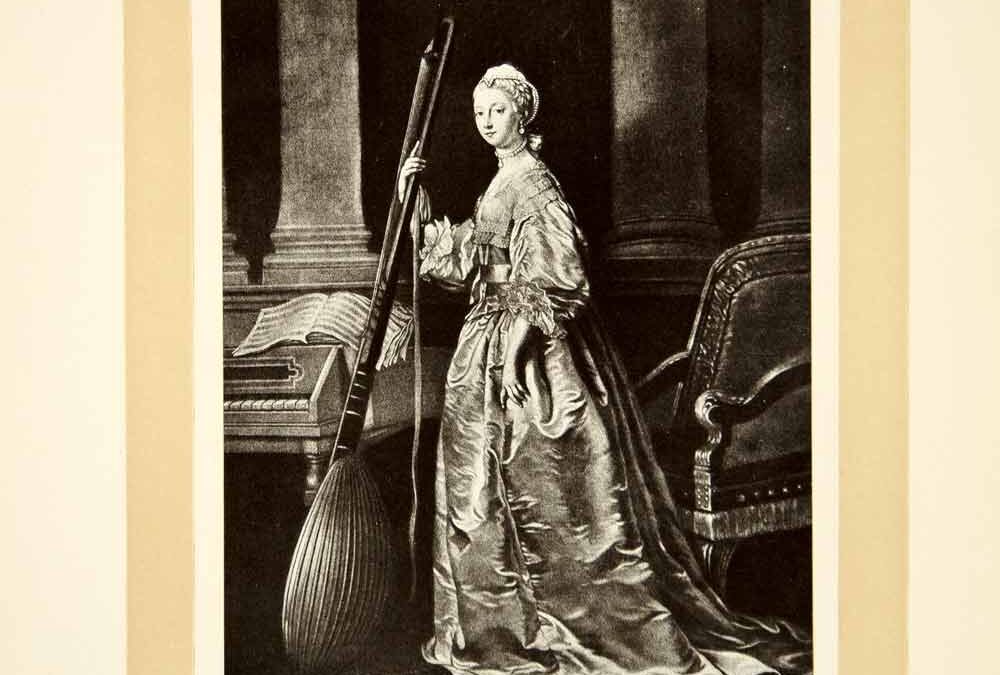 Coke added a salon picnic into her personal gossip. Like Chesterfield, whose son attended salon picnics in Hanover 25 years earlier, Coke’s “picnic” was locked in her personal writing and not published until 1970. While traveling on the Continent in...
Coke added a salon picnic into her personal gossip. Like Chesterfield, whose son attended salon picnics in Hanover 25 years earlier, Coke’s “picnic” was locked in her personal writing and not published until 1970. While traveling on the Continent in...
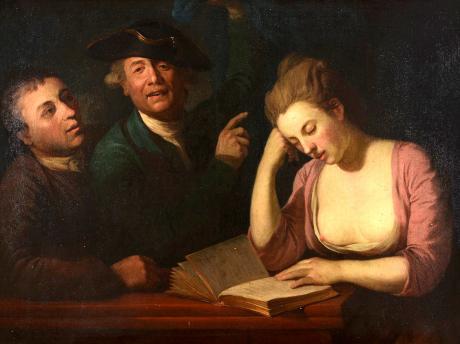 Samuel Foote’s comedyThe Nabob, now obscure, is the first linkage of picnic with the euphemism “nick-nack.” He used in the sense of dining en piquenique, which suggests familiarity. The alliterative corruption is meant to be humorous for those in the...
Samuel Foote’s comedyThe Nabob, now obscure, is the first linkage of picnic with the euphemism “nick-nack.” He used in the sense of dining en piquenique, which suggests familiarity. The alliterative corruption is meant to be humorous for those in the...
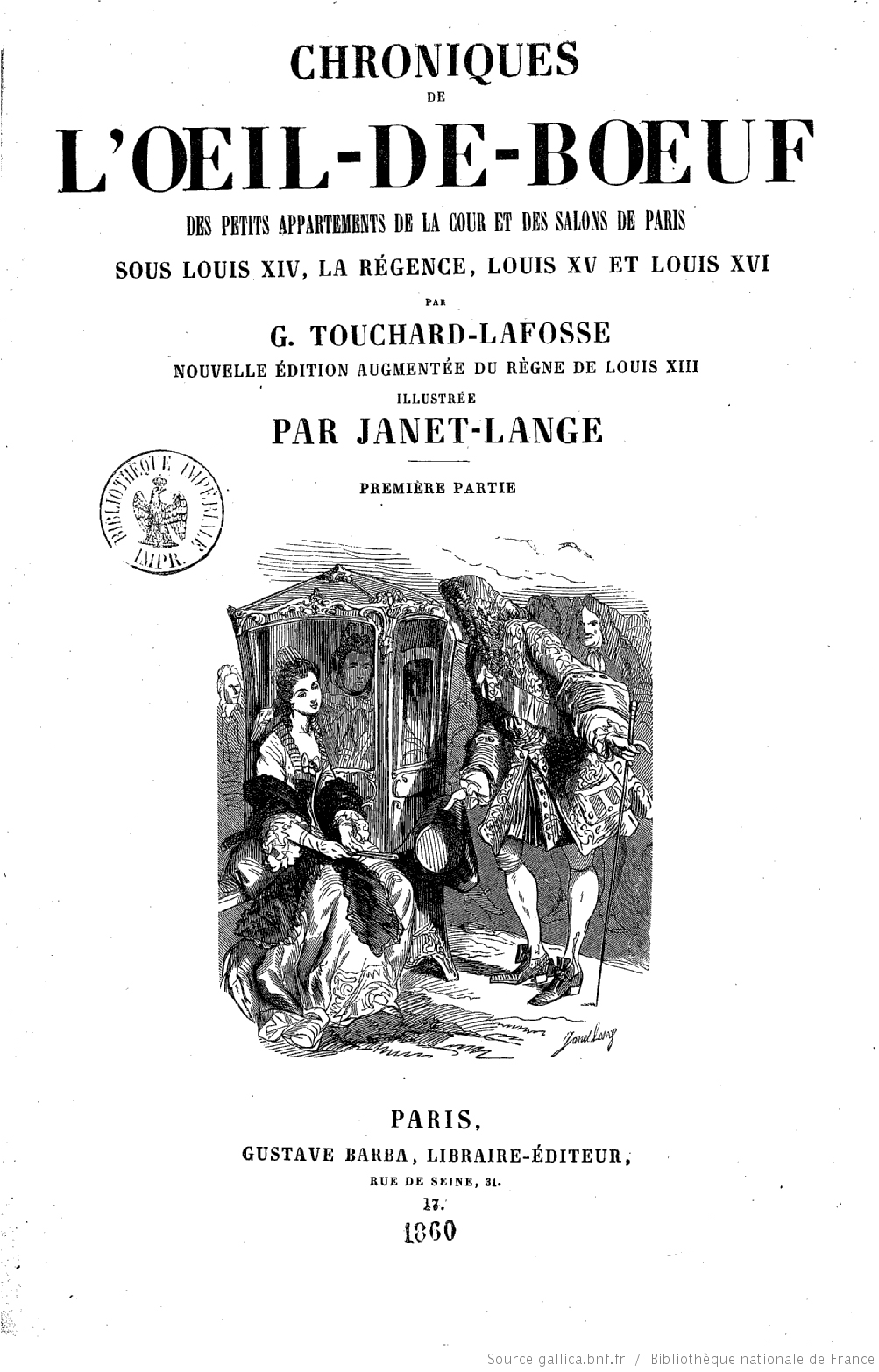 Oeil-de-boeuf is Touchard-Lafosse’s pseudonym used to sign off on his gossip reports about Louis XIV’s court and Parisian society Oeil-de-boeuf is a circular window, often indoors, above a doorway. As a metaphor, it suggests gossip that is sexually tinged or...
Oeil-de-boeuf is Touchard-Lafosse’s pseudonym used to sign off on his gossip reports about Louis XIV’s court and Parisian society Oeil-de-boeuf is a circular window, often indoors, above a doorway. As a metaphor, it suggests gossip that is sexually tinged or...
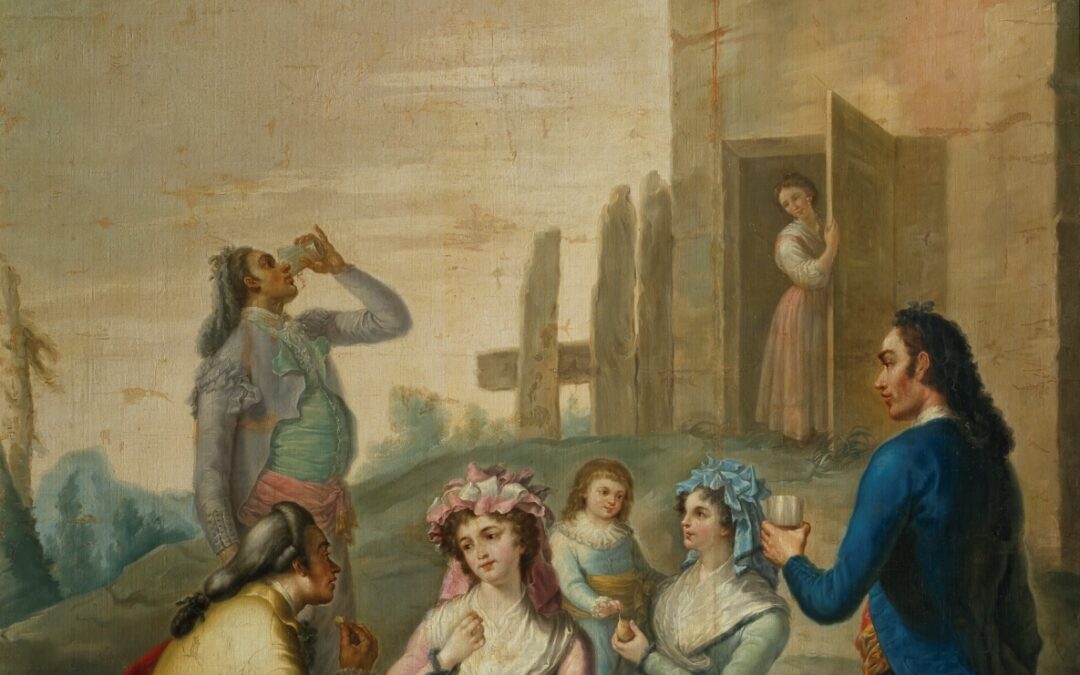 It’s a picnic, but little else is known about this painting. Featured Image: Ramon Bayeu y Subias. La merienda (1780s). Oil on canvas. Museo del Prado,
It’s a picnic, but little else is known about this painting. Featured Image: Ramon Bayeu y Subias. La merienda (1780s). Oil on canvas. Museo del Prado,











